- About Ramapo
- Academics
- Admissions & Aid
- Student Life
- Athletics
- Alumni
- Arts & Community
- Quick Links
- Apply
- Visit
- Give
FYS Courses by Topic and Section ID
INTD 101-22 - Exploring the Ramapough Lenape Nation: Cultural Identity
Mondays, Wednesdays, & Thursdays, 4:40 p.m. – 5:50 p.m.
CRN 40299
Ivy N. Payne
Adjunct Faculty
This course will examine the historical and cultural oppression of the Ramapough Munsee Lenape Nation, “the Keepers of the Pass.” Students will utilize videos, current events, guest speakers and texts to gain firsthand knowledge of the stereotypes, as well as the culture and identity of the tribe. Students will be asked to explore their own identity and how it has shaped / is shaping their development.
Download Full Syllabus
Peer Facilitators
INTD 101-23 - Storytelling and Culture
Tuesdays & Fridays, 3:40 – 5:20 p.m.
CRN 40178
Lester Mayers
Visiting Assistant Professor in Theater
This First-Year Seminar offers students an opportunity to focus on the essential elements of extraordinary storytelling. Students will delve into the nuances of contemporary and modern works by playwrights, poets, musical artists, films, and visual art, gaining invaluable tools for communal discussions, peer engagement, critical thinking, reflective writing, and voice and speech skills.
Download Full Syllabus
Peer Facilitators
INTD 101-24 - Film: A Critical Analysis
Mondays, Wednesdays, & Thursdays, 4:40 p.m. – 5:50 p.m.
CRN 40080
Zachary Bressler
Adjunct Faculty
This course is designed to introduce an appreciation of film as an art form. We will be discussing the artistic and technical choices filmmakers make in producing a film. We will be viewing some of the most highly acclaimed and respected films in history, giving the student a chance to analyze, critique, and discuss the films among their peers. We will view films from different genres to contrast and compare different styles of filmmaking. Students will be responsible for writing journal-like papers on each film. After viewing every film, we will have an open forum style discussion for opinions to be shared. There will be a project during the semester the students will choose a partner and create an oral presentation discussing a film of their choice.
Download Full Syllabus
Peer Facilitators
INTD 101-25 - Machine Dreams: Technology and American Culture
Tuesdays & Fridays, 1:45 – 3:25 p.m.
CRN 40456
Stephen P. Rice
Professor of American Studies
Producers of American culture have long been conjuring up dreams of what machines might be able to do in the not-too-distant future. Today, with the proliferation of generative AI technology (ChatGPT, Midjourney, Soundraw, and many others), that future is now.
Our machine dreams in the past have sometimes traveled toward utopia: the story of new technology is always a story of progress; technology will soon free us from having to work for a living; machines will be made to think and to feel and will join our lives as reliable companions. More often, though, these machine dreams have been machine nightmares. What happens when technology reaches beyond our ability to control it? How can ordinary people match the power of those who possess the machines we have made? Might technology in fact destroy our world?
In this course we will consider how technology has been imagined in a range of cultural expressions, from fiction, film, and television, to music, painting, and photography. We will take our study back to the early machine dreams of the nineteenth century and carry it to the present, considering how we, now, have inherited ways of thinking about technology that need to catch up to the changing world around us.
Download Full Syllabus (PDF)
Peer Facilitators
INTD 101-26 - Arts, Health, & Wellbeing: A Humanistic View
Fridays, 9:55 a.m. – 1:25 p.m.
CRN 40183
Maria Lupo
Adjunct Faculty
The intersection of arts & health has been recognized as an area that goes well beyond the creative art therapies encompassing the areas of humanistic medicine (observation & listening skills), medical ethics, narrative medicine/reflective writing and lastly but critical to our students & aspiring health professionals the practice of self-care. The proposed course will focus on all the above tailored especially for those who are interested in the health professions and how the arts play a part in our health and well-being. The class will explore the creative arts therapies, medical humanities, and their related fields.
Download Full Syllabus (PDF)
Peer Facilitators
INTD 101-27 - Exploring Music
Mondays & Thursdays, 4:10 – 5:50 p.m.
CRN 40395
Frank Meegan
Adjunct Faculty
In this FYS section, students explore the diverse ways people engage with music and incorporate it into their lives. We consider different forms of musical practice, social contexts for music making, genres and traditions of music, and technological and media issues. Learning experiences focus on creative participation, interaction and discussion, collaboration, research, oral presentations, critical thinking, and individual and group projects. Throughout the class we will listen to and perform music, describe and interpret music in diverse contexts, create and discuss musical recordings, and research musical topics. The section is open to all students regardless of musical background or academic major. Students should be willing to learn about a wide range of musical genres and social contexts, and be prepared to work creatively with others.
Download Full Syllabus
Peer Facilitators
INTD 101-28 - The History of Student Activism
Wednesdays, 9:00 a.m. – 12:30 p.m.
CRN 41167
Stacie Taranto
Associate Professor of History
College campuses in America have historically been sites of activism and protest, dating back to the founding of the nation. Today is no exception, with recent protests inviting comparisons to the 1960s — when some of the very same campuses in the news today, such as Columbia University, were making national headlines. But why was there so much activism in the 1960s, and are recent events truly comparable to that era? In this class, we study the student activism of the 1960s — for a variety of causes — in order to understand what young Americans were fighting for, and what college students like you can learn from that history.
Download Full Syllabus
Peer Facilitators
Copyright ©2025 Ramapo College Of New Jersey. Statements And Policies. Contact Webmaster.
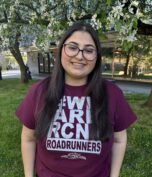
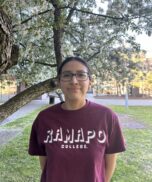
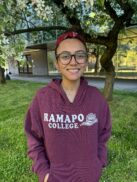
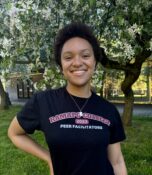
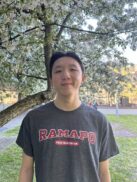


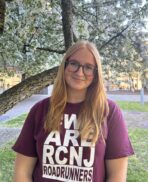
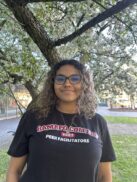
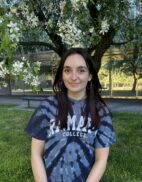
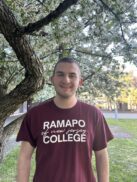
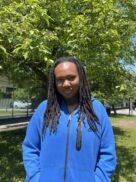
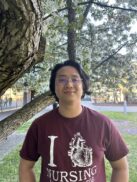
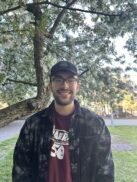

Follow Ramapo